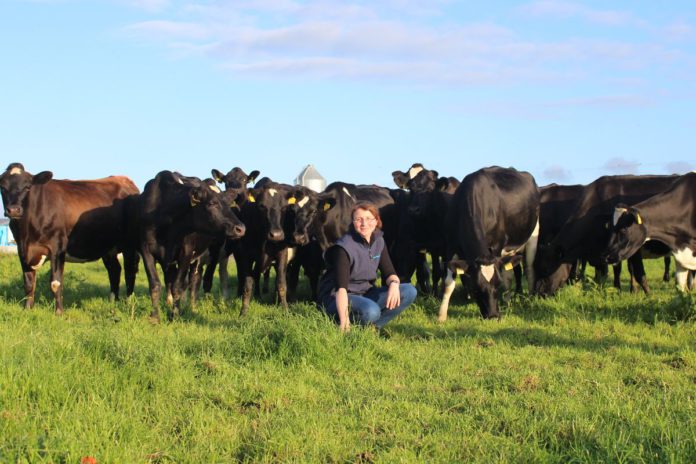In this week’s Women in Ag segment, That’s Farming, speaks to Dr Mary Kinston, about her undergraduate studies and PhD, working as a discussion group facilitator for independent groups and farming just under 500 dairy cows.
Believe in yourself, grow in confidence, keep going and do not look back. That is, quite simply, 42-year-old Dr Mary Kinston’s motto.
She has travelled and studied the world but now resides in Kerry with her family, farming just shy of 500 cows and running her own business.
Historically, she comes from a family of coal miners in South Derbyshire, England, who became tenant farmers in the early 1900s and subsequently bought a dairy farm in the mid-1960s.
“Farming is very much in the blood. Whilst my parents tried their very best to discourage my interest, eventually, they concluded that I had made the right career choice in choosing agriculture,” she told That’s Farming.
“However, being one of four with two older brothers, it had been made clear that the farm was for the boys.”
“If I were going to do anything of substance, I would have to rely on my education and take the view that to compete; I would have to do better. Hence I started saving to complete a masters at16. I was determined to get into agriculture,” she added.
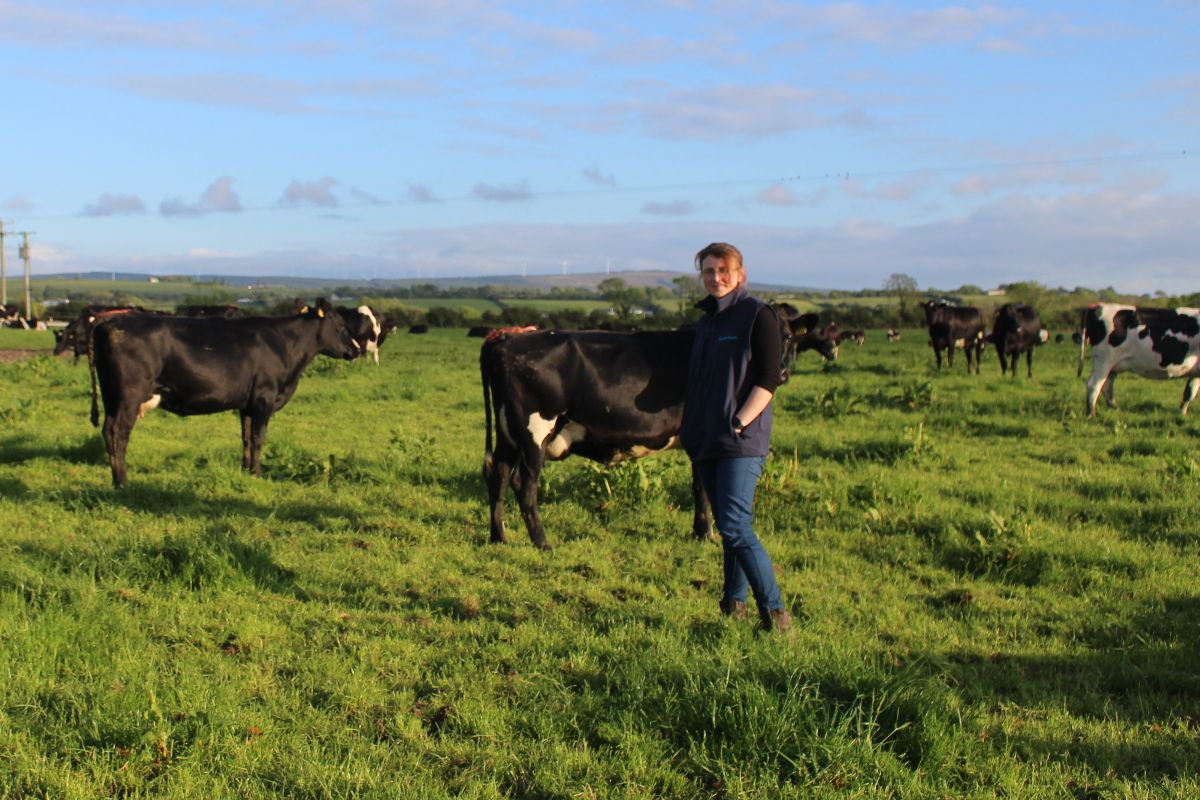
Pathway
She began her BSc Agriculture with Animal Production Science studies at University of Newcastle upon Tyne, UK, in 1997 and attained her degree in 2000.
“During my degree, I developed a special interest in grazing systems. This led me to apply for a PhD scholarship which the Meat and Livestock Commission awarded me.”
She graduated from the college five years later, this time completing a PhD in agriculture, specialising in autumn herbage.
She subsequently returned home (Derbyshire) in 2004 to farm alongside her brother. The herd had increased to 400, and her other brother had emigrated to New Zealand.
Whilst here, she developed an interest in dairy discussion groups and looked for opportunities to become involved in group facilitation.
This led her to move to New Zealand, where Dairy NZ employed her as a consulting officer in Canturbury.
Here, she met her Irish husband, Kevin, on-farm at a discussion group, and after working in the country for two years, she decided to move to Ireland and now resides in Crotta, Lixnaw, County Kerry.
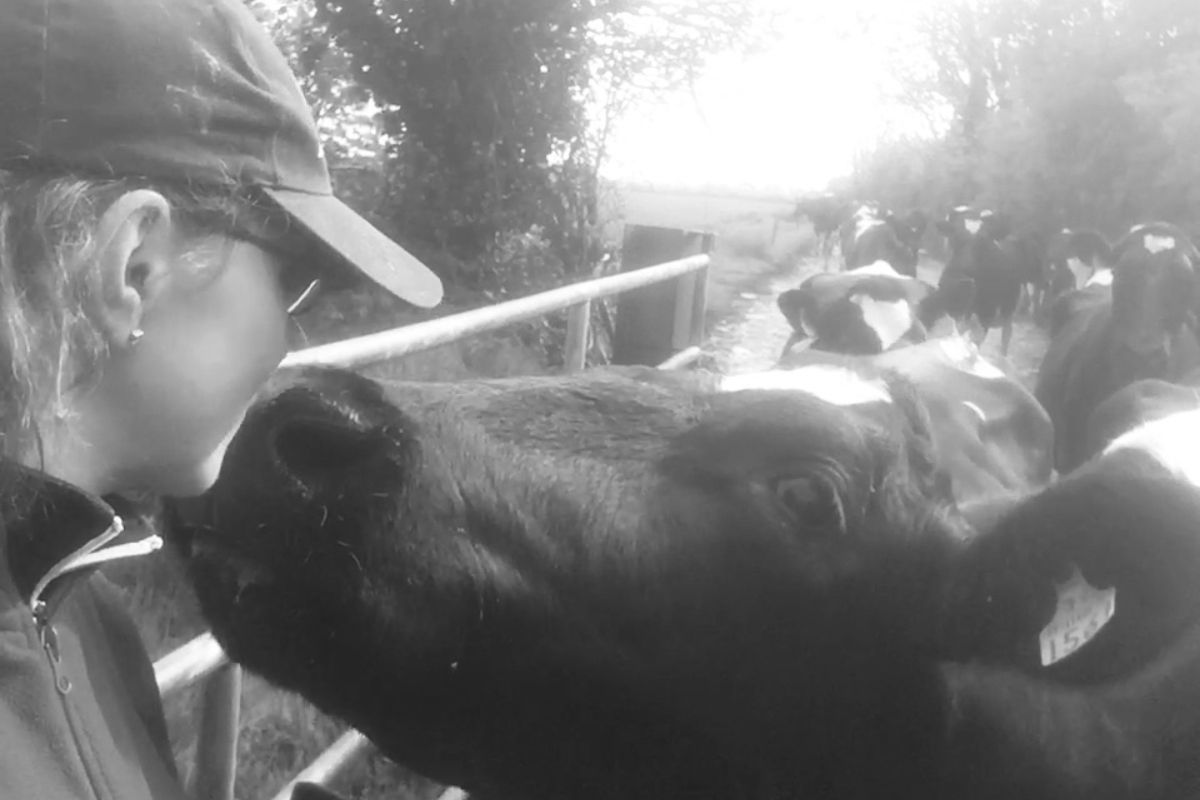
Mary Kinston LTD
In 2007, she established her own company, Mary Kinston LTD, working as a discussion group facilitator for independent groups.
“Essentially, I collect the necessary information to hold a group on a farm, allowing the host to pick the topics for discussion and for the group to aid in on-farm management decisions,” the managing director explained.
“Discussion groups often start around 11 am. First, all farmers summarise their present positions, and then we focus on the host to eventually give conclusions and considerations to future actions necessary.”
“Working and talking with farmers, supporting them to essentially help themselves is what I like most about this position. I like farmer honesty, innovation and willingness to help each other improve.”
“The distance I can travel and trying to juggle this with motherhood and farming at home can be challenging. However, in terms of the Covid-19 pandemic, life has continued very much as normal on the farm but with additional help from the kids.”
“Discussion groups moved to Zoom and WhatApp clips/questionnaires whilst in lockdown, but now I am enjoying being back at on-farm meetings,” the discussion group facilitator added.
“I travel to each host farmer, going as far as Mayo to Skibbereen and across to Waterford. So, essentially, I have no office.”
Seeing positive changes on individual farms associated with comments made at discussion group or private consultations are among her highlights.
She admitted that it can be slow to recognise progress, but it becomes quite evident with time. “Direct recognition from farmers at times has been very rewarding. Again, it is a chain of helping farmers to help themselves who then can help others.”
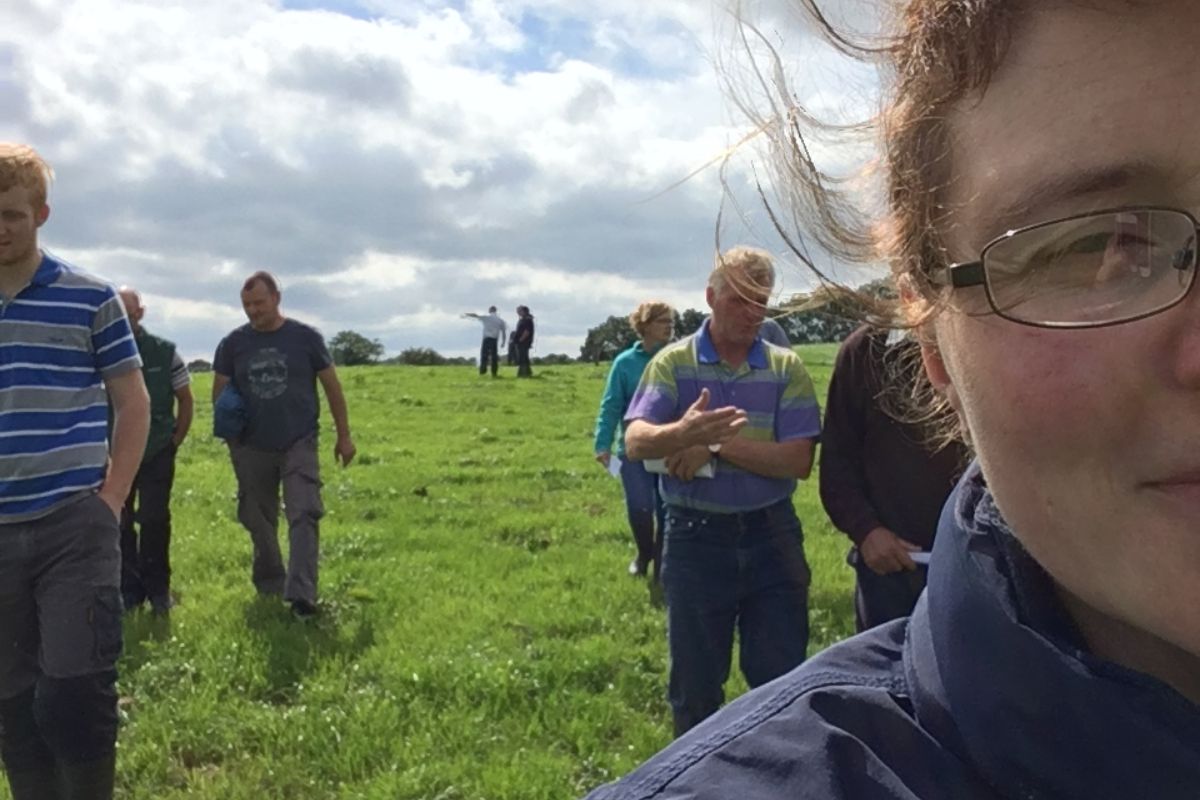
470 dairy cows at Crotta Farm & Glin Castle Farm
Mary is still involved in farming at a practical level, with her husband Kevin, his father, Kevin Snr, Thomas Fitzgerald (Glin farm manager), Douglas Fitzell and relief milkers.
They operate a spring-calving, grass-based system focusing on high-profit milk solids, with 470 Jersey-cross cows this year.
“Our home farm is heavy in nature. We are in a high rainfall area, so we have good housing and slurry storage to support our cows at grass to minimise pasture damage and for prolonged winters.”
“We have a 30-unit Westfalia parlour with manual drafting and have aimed to simplify our system as we grow. In 2018, we leased Glin Castle farm, which is cows-only on a now fully reseeded milking platform.”
Into the future, they intend to embrace new technology and research to simplify or reduce the cost of production whilst producing ethically nutrient-rich produce and striving for continual performance improvements.
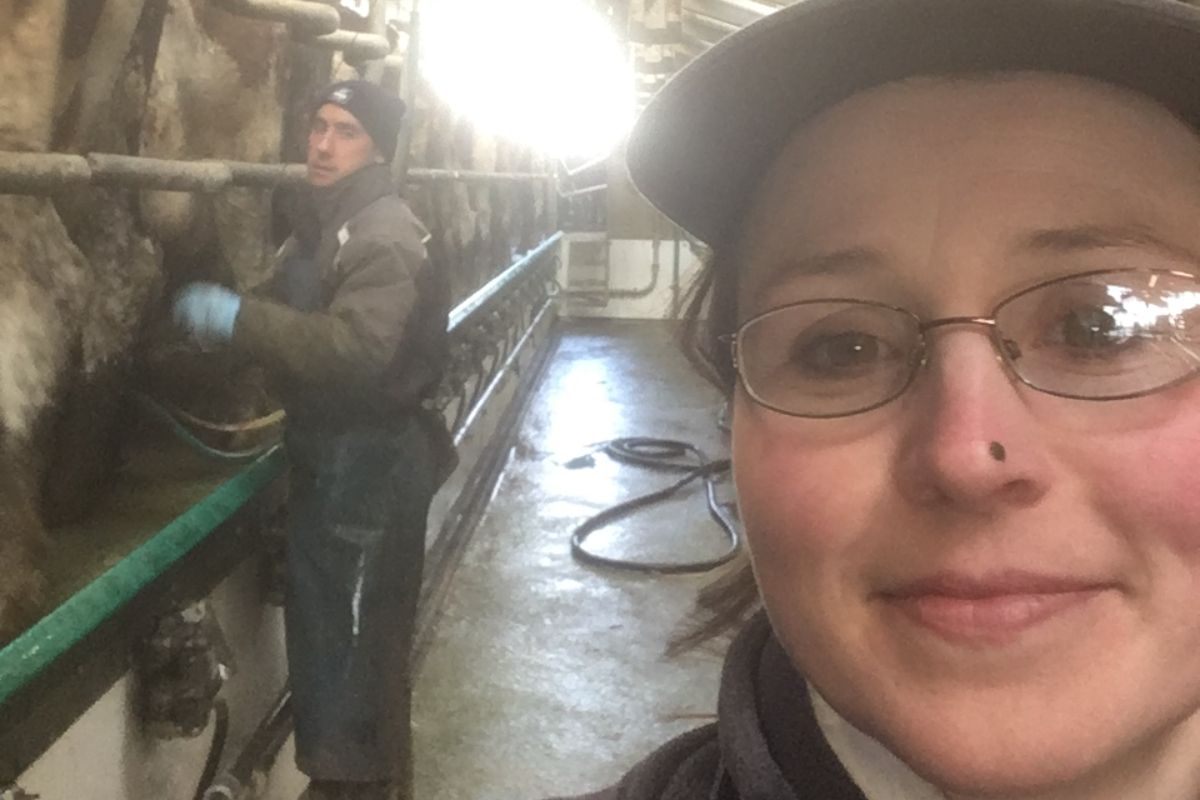
Multiple roles
Mary primary responsibilities on-farm include team support and KPI assessment. In addition, she oversees heifer calf rearing and morning milkings between February and July, among other duties.
“Breeding decisions, herd health and grass management are a big focus for me. I am the main person setting up a clean SCC herd after calving and monitor afterwards.”
“I pick the AI bulls and do the drafting on the home farm during mating. Also, I walk both farms weekly to aid grass management decisions and oversee paperwork regarding financial performance and compliance.”
“My role is very much to support my husband and the farm manager to hit target KPIs. But, finally, I try to keep them all well-fed, so I guess my role is wife/mother/cook/assistant manager,” she laughed.
“A typical day involves milking, calf rearing, travelling to discussion groups, supporting the family in activities, feeding them and preparing for the day ahead.”
Mary juggles several roles as a mother, wife, farmer and business owner.
She stated that being flexible with childcare is paramount. Having an au pair, family support, and childminders for transportation purposes have been key to succeeding with her own business and working alongside her husband.
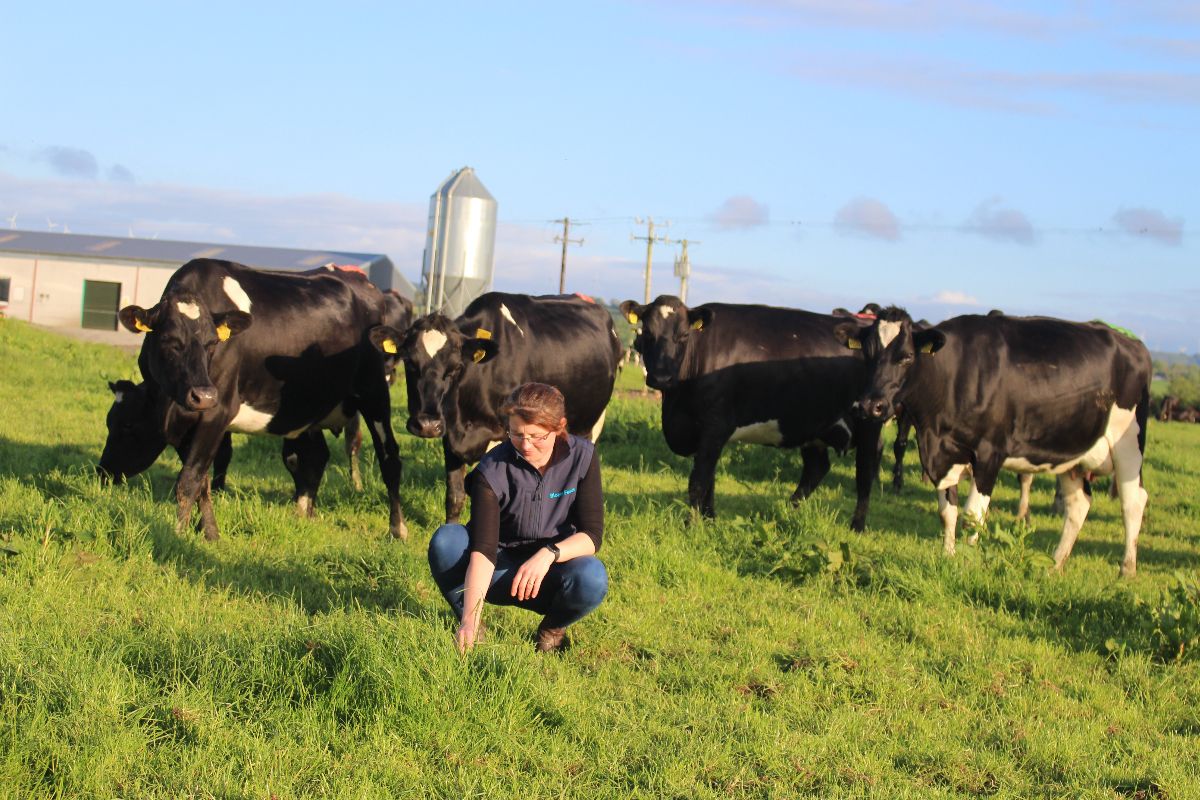
Women in ag
According to Mary, the attitude towards women in agriculture has changed in recent years.
“My farmers are very respectful towards me. Also, being a woman facilitator is a good dynamic in terms of questioning or seeing a different perspective in a male-dominated industry.”
“We now see more husband and wife/partner teams at group meetings, but there is much further to go.”
She highlighted that having all partners associated with the farm at meetings gives much more traction for necessary change as you are talking issues over with all decision-makers within the farm.
She believes the wife/partner is an overlooked and often undervalued resource. The discussion group facilitator believes there are many roles in a dairy farm where working together can assist in the farm’s overall performance and direction.
“A good step would be to talk about any farm in the press under both the farmer and his wife or partner’s name as farming impacts the whole family.”
Possibly encouraging women in farming to join a support group is another step, she suggested. “Presently, I am supporting the formation of the Dairy Women’s Network, which Lynaire Ryan (Agribusiness Education) and Paidi Kelly (TeamAg Advisory) have suggested.”
Reflection
“I knew what I was getting into, having been born into the life of dairy farming. However, I recognise that there may seem to be many hardships than the normal 9 to 5 working life.”
“However, one must also highlight or promote its positives even if we consider physical work on physical and mental well-being, or space and fresh air country life has to offer both personally and for childhood.”
“Agriculture is a great life, and there are lots of opportunities – especially if your willing to move. However, you need to consider strategic.”
“Getting exposed to this in New Zealand at 26 was very beneficial. Realising my personality type and that of my husband has assisted us both in working together to achieve our goals.”
“I realised at 10 years of age that I loved working with cows. By the age of 20, I developed a passion for grazing science.”
“I studied and travelled the world to develop my skillset in facilitation and advisory, to settle in beautiful county Kerry to milk cows and assist farmers in helping themselves.”


